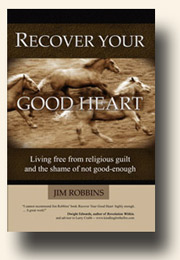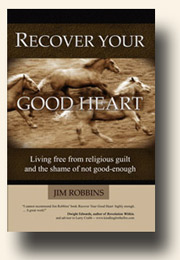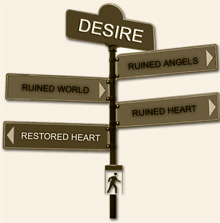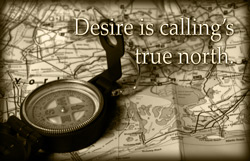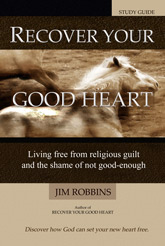What is Jesus restoring?
 Monday, January 19, 2009 at 6:47PM
Monday, January 19, 2009 at 6:47PM What is Jesus up to? What is he longing to give?
"Now these three remain: faith, hope and love."
The problem with this passage is that it's too familiar. We hear, "Faith, hope and love; but the greatest of these is love." Blah, blah, blah. Nice wedding sermon. Wonderful ideals. Where's the reception buffet?
But I began reconsidering this trio of bottom-line values. Not the concept of faith, hope and love; nor the theological ideals of faith, hope and love. Rather, the faith, hope and love of Jesus himself - the confidence that Jesus has.
If that's what's at the bottom of it all, after all else is sifted away, when immature and undeveloped humanity is finally whole, when mirrors are no longer needed...then there must be something more weighty about faith, hope and love than I'd assumed. These three must be at the heart of what Jesus is up to.
The offer - this side of the veil - is faith, hope and love. It is what is needed until Alpha becomes Omega and unseen is seen. Faith, as John Ortberg suggests is not the absence of doubt: rather, faith (with all it's questions and doubt) is exactly what you have when you don't have the longed-for thing, or person, fully in front of you. You don't expect faith to see fully. Faith, for now, is the way we see.
And hope is the confidence, the settled agreement, that behind the mystery is not a crotchety and manipulative Wizard of Oz, who has no real power but only billows of smoke and clanging machinery; but, rather, hope is a Father who aches until his children are brought into his own happiness. Hope is what you have when your desires feel caged and wounded, rather than loosed and liberated. Hope is what you have this side of the veil.
And love is what you have on both sides. Perhaps it is why love is the greatest of the three.
Therefore, because that trio is at the heart of what God is giving us now, these three are precisely what the Enemy is trying to sabotage. The ruined ones come to ‘steal, kill and destroy” what, exactly? …our faith, hope, and love. In the place of faith, hope and love, the Enemy brings in false substitutes, as he often does:
- Against faith -- Striving -- and it's message: “I must provide what God is withholding.” Striving occurs when we no longer believe our deep desires matter to God.
- Against hope -- Despair & resignation -- and the message: “This is the way things really are. Things are only as they seem.”
- Against love -- Shame -- and the message: "The story isn’t turning out liked I’d hoped for because there’s something wrong with me." Or, the Enemy brings abandonment and it's message: "I’m on my own: no one is fighting for me."
Be vigilant for those ways in which God is offering you faith, hope and love.
And, be ready for the ways in which the Ruined One is trying to steal them from you. The armor of God is real -- and available for times such as these -- clothe yourself with it.
It's also helpful to ask Jesus what he knows about the Father's heart and movements in our lives that would restore our confidence.
He is giving, even now.

















